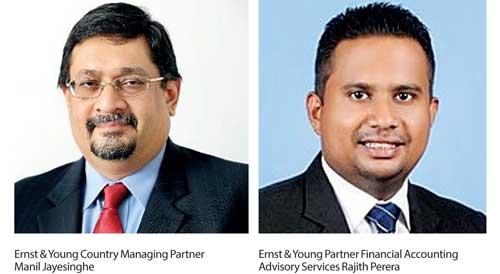Reply To:
Name - Reply Comment
The Central Bank of Sri Lanka (CBSL) directions on classification, recognition and measurement of credit facilities and other financial assets will come into effect from January 1, 2022 onwards. It’s paramount for bankers to understand the regulatory expectations in this regard. New directions were introduced with the objective of harmonising the regulatory framework with Sri Lanka Financial Reporting Standards-SLFRS 9 Financial Instruments.
 The regulator has emphasised the importance of having a comprehensive credit risk management framework while stipulating its main components. Accordingly, the licensed commercial banks (LCBs) are expected to have a framework covering all aspects of credit life cycle of its financial assets, which include policy on classification, potential risk, underperforming loans and write-offs, guidelines on computing expected credit losses (ECL) and disclosures.
The regulator has emphasised the importance of having a comprehensive credit risk management framework while stipulating its main components. Accordingly, the licensed commercial banks (LCBs) are expected to have a framework covering all aspects of credit life cycle of its financial assets, which include policy on classification, potential risk, underperforming loans and write-offs, guidelines on computing expected credit losses (ECL) and disclosures.
A high-profile deliberation on this crucial theme conducted by Ernst & Young Sri Lanka and the Maldives Country Managing Partner Manil Jayesinghe and Ernst & Young Sri Lanka Partner Financial Accounting Advisory Services Rajith Perera is to be held on November 22, 2021, where they will discuss regulatory expectations combined with financial reporting risk management challenges faced by banks.
Apart from the emphasise on governance, compliance with new regulation will induce other technical and operational changes for banking community. Mainly, change in the definition of non-performing loans (NPL) may trigger system modifications and classification for certain segments of the loan portfolio while the specific and general provision based on the sub-classification will cease to exist and provision determination will be based on SLFRS 9 Financial Instruments combined with the directive providing additional guidance as appropriate.
Deliberation on Significant Increase in Credit Risk (SICR) will require lending officers to exercise judgement and have well-documented policies and processes to ensure consistency in terms of staging its credit facilities. Another aspect, which needs early intervention, is on recognition of interest income for stage three facilities, which shall be recognised in line with SLFRS 9 Financial Instruments. Banks may review the mechanism for income recognition as the interest suspension is no longer relevant with the revocation of the respective circulars.
Further, there will be impairment charges defined based on SLFRS 9 and the directive based on 12 months ECL and lifetime ECL. Minimum stage 1 provision of 0.5 percent will be maintained and in the event 0.5 percent is not maintained, adequate appropriations to be made from equity.
Another important requirement under the new direction is on managing model risk. Banks are requested to develop comprehensive policies in relation to model governance covering life cycle of model development and validation. Given the increased use of sophisticated models with the implementation of SLFRS 9, regulatory requirement is timely to ensure accuracy and completeness of financial information.
Further, if any changes in the credit models are required, the rationale and justification for such change shall be evaluated by the chief risk officer, integrated risk management committee and approved by the board of directors.
The directive states that scope of internal audit function should be enhanced to independently evaluate the effectiveness of the credit risk assessment and measurements. Further, the internal audit function will at least annually, validate and evaluate all credit risk assessment models, inputs and assumptions used along with data smoothening. An assurance on the adequacy and effectiveness of back testing should be provided from third line of defence perspective.
Economists, banking and financial service professionals and other decision makers interested are invited to join for further deliberations on this crucial theme webinar with Ernst & Young, on November 22, 2021, from 9:00 a.m. to 12:00 noon. For registrations contact Thilini Perera on [email protected] or
Tel. +94 770623529.